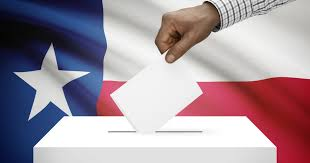
[Story written by Jacob Lehrer]
The power grid of Texas is on the election ballot this coming November. Winter storm Uri in February 2021 will be remembered when Texas hit rolling blackouts as power plants froze up and failed to deliver power, causing statewide power outages and blackouts.
This cost hundreds of billions of dollars in damages and led to the deaths of over 700 people in the state of Texas. Since then, the Texas power grid has been observed under a political scope with Texans worried if the state of our power grid, and the people running it, will be able to keep the lights on.
For over 20 years the Texas power grid has been a deregulated market based on supply and demand and is an energy island disconnected from the rest of the country. We don’t have many power plants sitting idle in case we need power during events like a winter storm.
The Texas power grid has become very political because of the backlash the fossil fuel run grid has received after Winter storm Uri. The politicization is over how the grid should be run, what it should be run by, and how it should be regulated.
Republicans stand by the power grid staying strong, running on fossil fuels and some renewable energy. Governor Abbott touts that the necessary laws have been put in place to ensure that the power grid will be running efficiently.
“The State of Texas continues to monitor the reliability of our electric grid, and I thank ERCOT and PUC for their hard work to implement bipartisan reforms we passed last year and for their proactive leadership to ensure our grid is stronger than ever before,” says Greg Abbott.
The state legislature made reforms, notably allowing the governor to take control, if need be, requiring plants and transmission lines to be weatherized, and now the PUC will penalize any energy company that fails to comply with the regulations.
The reforms included weatherizing power plants and transmission lines and having state regulators to review energy availability and have emergency alert systems. But critics still do not think that the power grid was resilient as the Governor made it out to be.
Maintenance repairs are scheduled for the fall and spring when energy demand is low. Due to record heat waves starting in the spring, these power plants did not get to receive that earlier this spring due to high demand. A shutdown of six power plants ended up happening.
Additionally, throughout the summer, the Electric Reliability Council of Texas (ERCOT) asked Texas residents to conserve energy multiple times despite stating that enough wattage would be available.
During the record heat in the summer, power grids were pushed to their limit, and renewable energy saved rates powers extra money that what would have been on their energy bills.
Texas energy regulators plan to fine oil and gas companies that fail to comply with the weatherization efforts that the state has imposed since last year to protect from both extreme cold and extreme heat.
Texas Republicans are going to stand by the fossil fuel run energy grid and its independence from federal regulation. But some Texans are not convinced the grid is fixed, and Democrats are playing on this.
Beto O’Rourke running for Governor declares he wants to “fully weatherize the power grid to withstand extreme weather and connect Texas to the national grid so that we can draw down power when we need it most. We’re going to prevent energy corporations from price gouging Texans in the future and dramatically reduce Texans’ energy bills going forward.”
Democrats are taking a different turn than their Republican counterparts. Their solutions are to regulate the power grid and have regulation in case we face another crisis, and we can draw energy from other parts of the state.
That would put us under federal regulation that would allow federal incentives such as the Inflation Reduction Act, the “Build a Better Grid” Initiative, and the Bipartisan Infrastructure Law that the state can use to support an energy infrastructure that is moving towards renewable energy such as wind, solar, hydro, and the like.
According to Texas Democrats, “As energy consumers around the world increasingly demand cleaner energy, it’s becoming clear that we will soon lose our leadership in oil and gas if we don’t work seriously to remove emissions from the industry and better protect our air, water, and public lands.”
Democrats also believe that through this they will not only lower energy costs, but they will also increase jobs in the energy sector. That’s the approach Texas Democrats are taking with the issue of regulating the power grid. They are pushing for Texas to have a reliable and sustainable power grid that is moving in the direction of the world, increases jobs, and lowers energy costs.
In a poll done by the University of Texas in Tyler, only 15% of Texas voters have great confidence in the power grid, 31% have some confidence, and around 50% of respondents have little to no confidence in the reliability of the current Texas power grid.
The power grid is going to be a political battle of how the grid is regulated. Texas voters are split in confidence in the grid, or the people who are running it. In a deregulated, competitive energy market, companies can skirt some corners.
The Texas power grid continues on the battleground of state politics in Texas. It will be one of several major issues in Texas that voters will consider voting in this election. On September 30, Governor Greg Abbott and Candidate Beto O’Rourke will have one debate at The University of Texas Rio Grande Valley in Edinburg, TX, hosted by Nexstar Media Group.